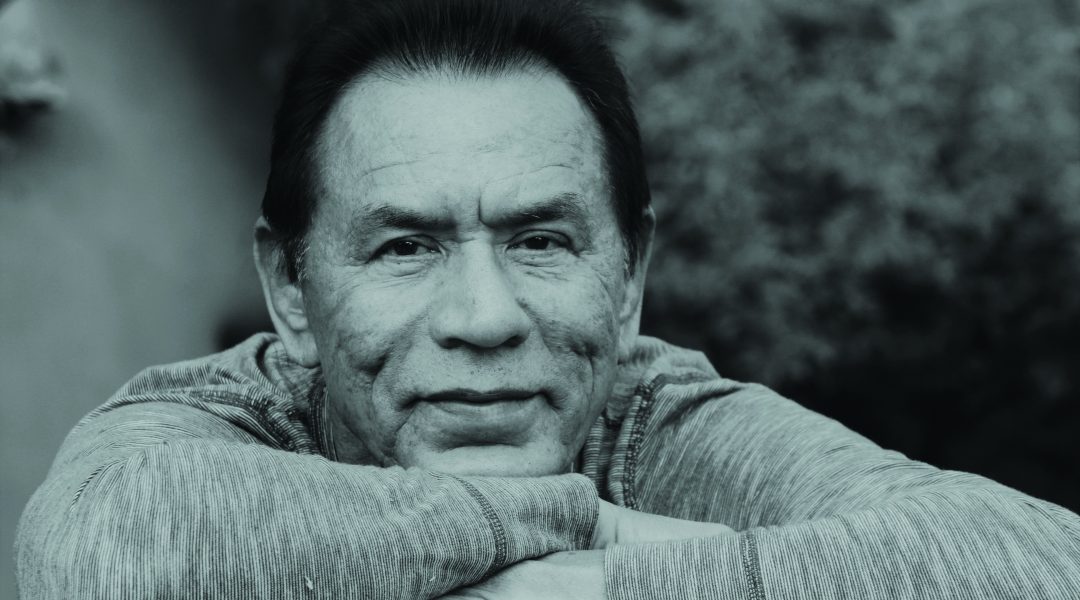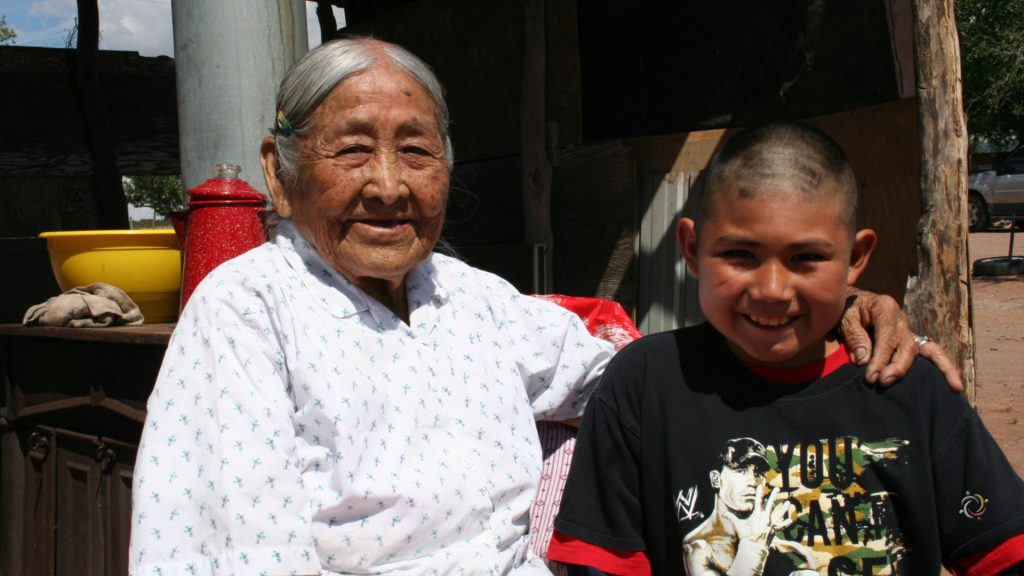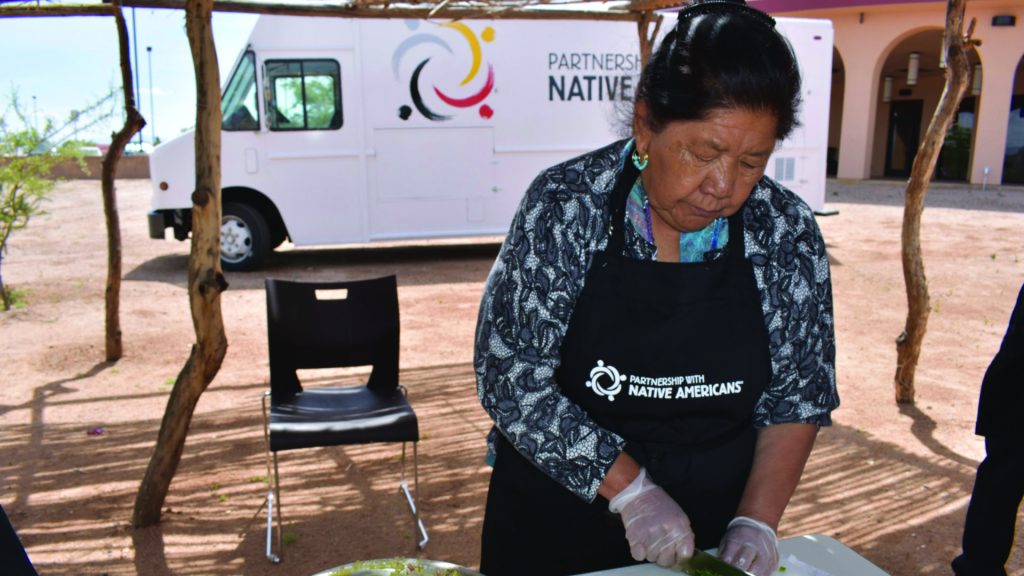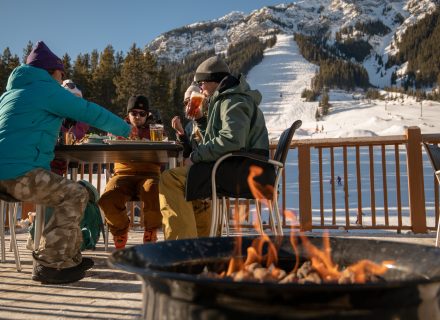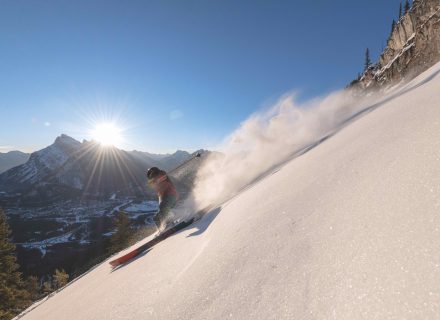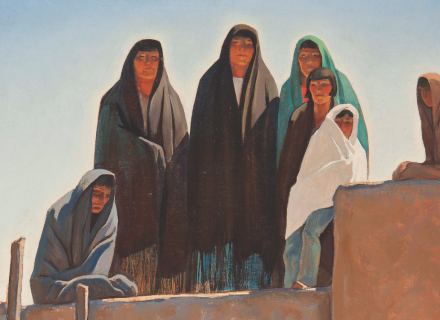Wes Studi hosts a new five-part series by the nonprofit Partnership With Native Americans.
Wes Studi recently became the on-camera face of a series of important public-service announcement videos by the nonprofit Partnership With Native Americans. Since 1990, PWNA has been working with Native Americans living on remote, geographically isolated, and under-resourced reservations and supporting reservation programs to serve immediate needs for 250,000 Native Americans annually.
The five-part Realities Video Series With Wes Studi includes an accurate portrayal of life on the reservation and dispels long-held myths that continue to impact Native communities today. The series covers history and treaties, realities on the reservations, education dreams and disparities, casino economics, and the lack of charitable giving for Native causes and communities, some of which mirror conditions found in developing countries.
C&I talked with Studi about the project and his thoughts on the pressing issues facing Native Americans.
Cowboys & Indians: You were born in a rural area in Cherokee County, Oklahoma. What led you to get involved in the PWNA video series about their work in similarly under-resourced Native communities?
Wes Studi: I had always wanted to find a way to be effective on a national level, and this gives me the opportunity to help on issues and problems related to working low-income people — people who have to maintain employment when it doesn’t really pay as well as or keep up with the cost of living. Many people work more than one job or have to travel great distances in order to work, and that requires a method of transportation, which is usually an individual vehicle. Motor vehicles have to be maintained. The effort to eradicate hand-to-mouth living is extremely complex. There are a lot of problems and obstacles to overcome just to put food on the table, gas in the car, and other immediate needs such as those. And then you have to continue to work on long-term solutions. Solutions are there with people working on solar power and things that can help with self-sustainability on the home front.
C&I: What was one of the most striking things you learned during the production of the series?
Studi: What really struck me most was the percentage of charitable giving to Native American issues and causes or issues that Natives face. It was surprising that the percentage was so small, even though I suspected it was the case. Look at the emails or mail you get today — you’re overwhelmed by charitable-giving requests ranging from tiny towns in the U.S. to all around the world. We’re asked to help everywhere. Even so, it’s amazing to me that over the years, the percentage of charitable giving in the U.S. that is directed toward Native Americans is less than 1 percent.
C&I: Tell us about one of the issues that PWNA uses donations to address.
Studi: There are many issues. It’s either something of immediate need or something longer term that PWNA is working toward or assisting with. One example of immediate relief would be the flooding in the Dakotas and the aid that went to a couple of reservations there. Then you look at the long-term assistance to address housing and other issues, including employment and transportation, because of the remoteness of the areas that many Native Americans live in. Transportation is a huge priority. In Indian Country in northeast Oklahoma, for instance, it’s 40 to 50 if not 100 miles of travel to maintain employment.
Keep in mind these problems that people face aren’t always fixed with a quick Band-Aid. Sustainability is key to what our efforts work toward — self-sustainability and a helping hand when one is needed.
C&I: You’ve said you’ve been surprised by misconceptions about Native Americans. What’s something people need help understanding?
Studi: Some of the big misconceptions that the general public may have about Native Americans in the U.S. is the belief that we don’t pay taxes or that the government gives us money or that our needs are taken care of by the government or that because casinos are everywhere Native Americans are rolling in money and buying up land. While those things are happening to a small extent, they are not happening across the board.
C&I: What would you say to Indigenous kids trying to make their way in the world?
Studi: In my heart of hearts, I believe that people are basically good and tend to look out for their brothers and sisters. There is hope that we can overcome differences of race, color, creed, whatever — I really believe that’s the case. I know that it truly feels good to be able to help a person in need. It’s very difficult for any of us to ever ask for assistance when we know that we should be able to provide for ourselves and our families. When assistance is rendered, I think there’s a good feeling all around. Those who are assisted have a feeling of inclusion — “Yes, I’m recognized as a worthwhile being.” Giving, a feeling of being of service to others, invigorates the spirit. I think we all strive to have meaning and feel good about ourselves, and this is a process that can provide it.
C&I: How might Cowboys & Indians readers help?
Studi: One thing is that they could support PWNA and keep in mind that we as Native Americans are your neighbors. We’re all around you. We didn’t disappear over the years. Yes, we are part of the larger community. And some of us need help from time to time.
Find out more about Realities Video Series With Wes Studi and Partnership With Native Americans at nativepartnership.org/psa.
Photography: Images courtesy Partnership With Native Americans
From our April 2020 issue.






